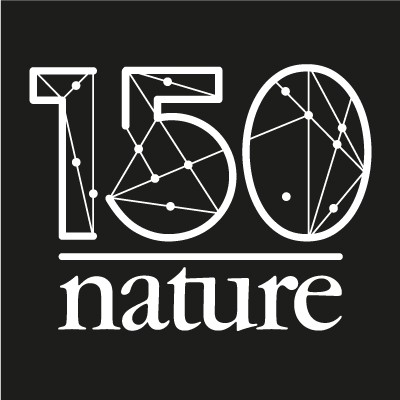
Could Facebook incubate Nobel-prizewinning scientists in the way that some twentieth-century corporations did? Credit: Alex Wong/Getty
To count the handful of years between the newest and oldest paper on many a citation list is to know that scientists rarely have cause to look back very far. That’s a problem. Research is not just about placing one new brick on top of — or instead of — the last. It is a product, and a shaper, of people, place and society. To navigate that context wisely, the long view is essential.
150 years of Nature — an anniversary collection
Why? Because although history might not repeat itself, it often rhymes. Consider post-financial-crash rises in nationalism or the predictable cycles of hubris and horror that have attended new technologies from pesticides to plastics, artificial intelligence to gene editing and self-driving cars. Recall that evolutionary theory begat eugenics; atomic physics led to the bombings of Hiroshima and Nagasaki; and machine learning has sent democracies tottering.
We ignore our past at our peril.
So, from this week, Nature readers are invited to walk in the company of leading historians of science as they explore how the past century and a half has forged some of the defining features of today’s scientific system.
A series of essays, the last of which will appear in Nature’s 150th-anniversary issue on 7 November, charts the rise of government and military funding, industrial research and development, data, ethics and the superpower that is China. The series also meditates on how what we discover alters how we think of our world and ourselves.
Each author was asked the same question: “How did we get here from there?” (with ‘there’ being ‘science in 1869’, the year that Nature began publishing, and ‘here’ being science in 2019). Although the pieces range across continents and disciplines, through ribosomes and rebellions, from steam to the stars, together they tell one story: that discovery is always political.
That the powerful have steered — and have been steered — by science is encapsulated in David Kaiser’s opening essay on the funding system so familiar today. Our assumption that a government is failing its people and its future if it underspends on science has its roots in the empire-building of the late nineteenth century and the war complexes of the twentieth. And it is these sweeping, strategic injections of national cash that built the vast edifice of universities, academies, institutions and spin-offs that we take for granted.
And, of course, those who pay the piper call the tune — changing research for decades or more. Climate science — the very idea of data itself, as Sabina Leonelli will explain in a forthcoming issue — got a jump-start when the sprawling Austro-Hungarian Empire of the mid-nineteenth century invested heavily in meteorology to craft a narrative of unification that only a shared weather system could supply.
Seismology sprinted to confirm the theory of plate tectonics thanks to cold-war anxieties about clandestine nuclear tests. Repeated state investments in agricultural science ‘saved’ China from many fates in the mid-twentieth century, Shellen Wu relates. Early chemical and communications corporations nurtured Nobel prizewinners, Paul Lucier recalls; will Facebook or Google do the same?
We could have chosen so many other signature elements of science. The university, the journal, the laboratory, the paper; peer review, metrics or patents; disciplines, observation, inquiry, experimentation and knowledge. But many of these have origin stories much longer than 150 years.
Our choices are without doubt both idiosyncratic and debatable — do tell us what you’d have picked. Yet we feel they hold an important lesson: that to understand ourselves, our moment, our challenges, options and risks, and to plot a responsible way forward, science has to know where it’s come from, the problems and solutions that went before and the mistakes it really must not repeat.


 Discovery is always political
Discovery is always political
 China: How science made a superpower
China: How science made a superpower
 How science has shifted our sense of identity
How science has shifted our sense of identity
 Data — from objects to assets
Data — from objects to assets
 Can marketplace science be trusted?
Can marketplace science be trusted?
 Ethical research — the long and bumpy road from shirked to shared
Ethical research — the long and bumpy road from shirked to shared
 Science must move with the times
Science must move with the times
 Scientists must rise above politics — and restate their value to society
Scientists must rise above politics — and restate their value to society
 Science and the rise of nationalism in India
Science and the rise of nationalism in India
 What Boris Johnson’s leadership could mean for science
What Boris Johnson’s leadership could mean for science






